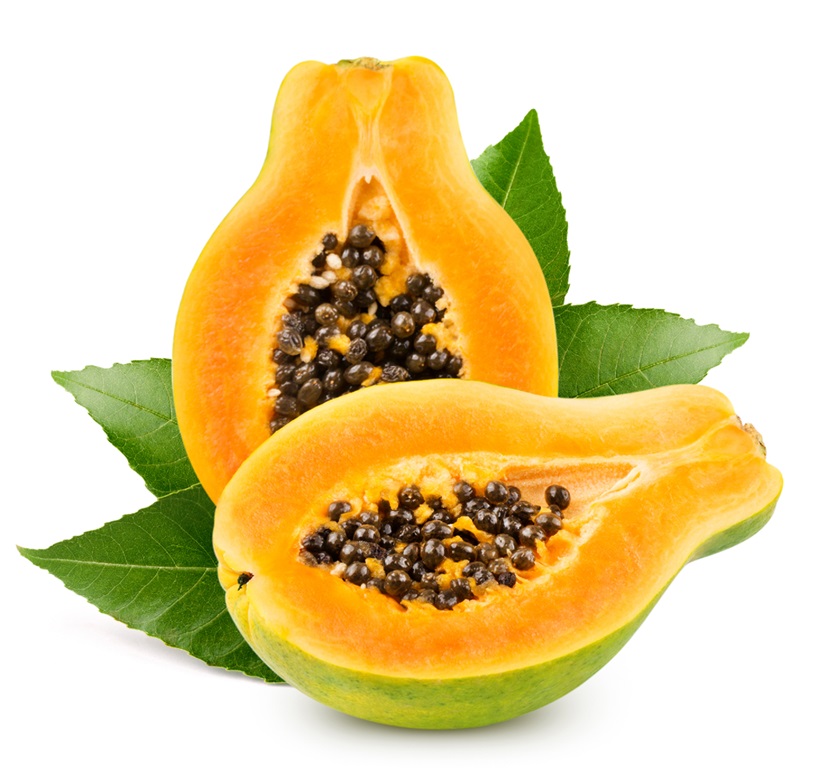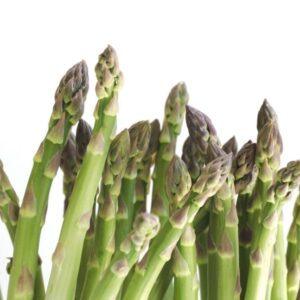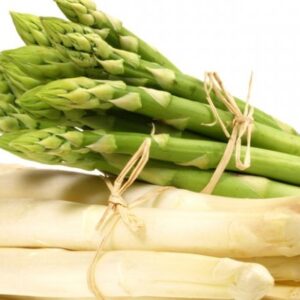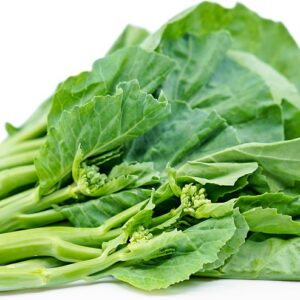Kapoho Solo Papaya
The Kapoho Solo variety of papaya is celebrated for its succulent, sweet flavor and creamy texture. This tropical fruit typically grows to medium to large sizes, with an elongated, pear- shaped form and a smooth, thin skin that turns from green to yellow-orange when ripe. The flesh of the Kapoho Solo papaya is a vibrant orange-yellow, tender, and exceptionally juicy, with a delectable sweetness and mild, tropical aroma. It is prized for its luscious taste and is enjoyed fresh, sliced, blended into smoothies, or used in various culinary applications. The Kapoho Solo papaya is also valued for its nutritional content, being rich in vitamins A and C, as well as dietary fiber and antioxidants. With its irresistible flavor, smooth texture, and health benefits, the Kapoho Solo papaya is a beloved favorite in tropical regions worldwide.
The Kapoho Solo variety of papaya is celebrated for its succulent, sweet flavor and creamy texture. This tropical fruit typically grows to medium to large sizes, with an elongated, pear- shaped form and a smooth, thin skin that turns from green to yellow-orange when ripe. The flesh of the Kapoho Solo papaya is a vibrant orange-yellow, tender, and exceptionally juicy, with a delectable sweetness and mild, tropical aroma. It is prized for its luscious taste and is enjoyed fresh, sliced, blended into smoothies, or used in various culinary applications. The Kapoho Solo papaya is also valued for its nutritional content, being rich in vitamins A and C, as well as dietary fiber and antioxidants. With its irresistible flavor, smooth texture, and health benefits, the Kapoho Solo papaya is a beloved favorite in tropical regions worldwide.
Description
The Kapoho Solo variety of papaya is celebrated for its succulent, sweet flavor and creamy texture. This tropical fruit typically grows to medium to large sizes, with an elongated, pear- shaped form and a smooth, thin skin that turns from green to yellow-orange when ripe. The flesh of the Kapoho Solo papaya is a vibrant orange-yellow, tender, and exceptionally juicy, with a delectable sweetness and mild, tropical aroma. It is prized for its luscious taste and is enjoyed fresh, sliced, blended into smoothies, or used in various culinary applications. The Kapoho Solo papaya is also valued for its nutritional content, being rich in vitamins A and C, as well as dietary fiber and antioxidants. With its irresistible flavor, smooth texture, and health benefits, the Kapoho Solo papaya is a beloved favorite in tropical regions worldwide.
To plant the Kapoho Solo variety of papaya, folLow these steps:
1. **Climate:** Kapoho Solo papayas thrive in tropical and subtropical climates with warm temperatures year-round. They are sensitive to cold temperatures and frost, so ensure that the climate in your area remains consistently warm.
2. **Location:** Choose a planting site with full sun exposure and protection from strong winds, as papaya trees have shallow roots and can easily topple in windy conditions.
3. **Soil:** Kapoho Solo papayas prefer well-drained, fertile soil with a pH level between 6.0 and 6.5. Sandy loam soil is ideal for good root development. If your soil is heavy or clay-like, consider amending it with organic matter such as compost or well-rotted manure to improve drainage and fertility.
4. **Planting:** Plant Kapoho Solo papaya seeds or seedlings in spring or early summer when the soil has warmed up. Dig a hole slightly larger than the root ball of the seedling and backfill it with soil mixed with compost. Space multiple papaya trees at least 6-10 feet apart to allow for adequate growth.
5. **Watering:** Keep the soil consistently moist but not waterlogged, especially during the first few months after planting. Once established, papaya trees are somewhat drought-tolerant but still require regular watering, particularly during dry periods.
6. **Fertilization:** Kapoho Solo papayas are heavy feeders and benefit from regular fertilization. Apply a balanced fertilizer high in potassium every 2-3 months during the growing season. Avoid excessive nitrogen, as it can promote vegetative growth at the expense of fruit production.
7. **Pruning:** Prune Kapoho Solo papaya trees regularly to remove dead or diseased branches and maintain an open canopy structure. This allows for better air circulation and sunlight penetration, which promotes healthy growth and fruit production.
8. **Mulching:** Mulch around the base of the papaya tree with organic materials such as straw or wood chips to help retain soil moisture, suppress weeds, and regulate soil temperature.
9. **Pest and Disease Management:** Monitor Kapoho Solo papaya trees regularly for signs of pests such as aphids, fruit flies, and spider mites, as well as diseases like powdery mildew and papaya ringspot virus. Practice good garden hygiene, and promptly remove and destroy any affected plant material to prevent the spread of pests and diseases.
10. **Harvesting:** Kapoho Solo papaya fruits typically mature within 6-9 months after planting, depending on growing conditions and cultivar. Harvest ripe papayas when they develop a yellow-orange color and yield slightly to gentle pressure. Cut the fruit from the tree using a sharp knife, leaving a short stem attached.
By following these planting instructions and providing proper care, you can successfully grow the Kapoho Solo variety of papaya in your garden and enjoy its delicious fruits.





